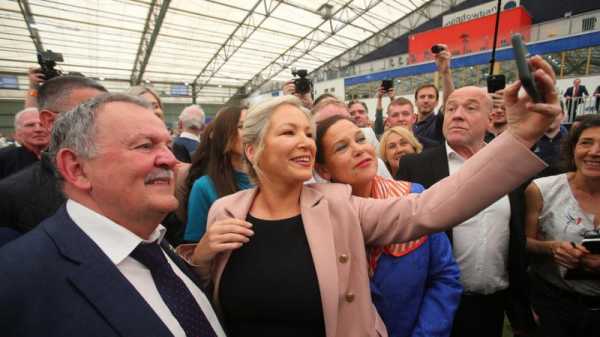
Love or loathe him; Boris Johnson is a lucky politician. Just as months of scandals about lockdown parties were threatening to overwhelm him, the war in Ukraine made people forget about them. In last week’s municipal elections across the UK, Johnson’s Conservatives were beaten and bruised but not thrashed. He lives to fight another day and, quite possibly, another election.
But the consequences of his Brexit deal and its effects on Northern Ireland have come back to haunt him. Lest we forget, 56% of Northern Ireland’s voters cast their ballot to stay in the EU back in 2016. At last Thursday’s Northern Ireland Assembly elections, Sinn Fein, which supports a united Ireland, became the first Irish nationalist party to win an election in Northern Ireland and will now appoint the First Minister in the next devolved government.
Now the largest party in Northern Irish politics and, according to opinion polls, well placed to repeat its success in the next elections in the Republic of Ireland, Sinn Fein has come a long way from the days when it was widely regarded as little more than the political wing of the IRA and was banned for having political advertisements – to deny it ‘the oxygen of publicity’ – by Margaret Thatcher.
It leaves Boris Johnson’s government in a tough position concerning the future of the Northern Ireland protocol, hated by both Johnson’s Conservative party and the Democratic Unionist Party. The DUP, which suffered significant losses, has threatened not to be part of any power-sharing executive unless the protocol is radically changed or scrapped. Johnson and his ministers have hinted at introducing domestic law to override the protocol. Like other nationalist parties, Sinn Fein and the neutral Alliance party, which is now the third-largest force in the Belfast assembly, support the protocol.
In negotiating and agreeing on the protocol, which establishes customs checks on UK exports to the island of Ireland, Johnson did something that he promised the DUP and Northern Ireland he would not do. By its very nature, the protocol separates Northern Ireland from the rest of the UK’s internal market and imposes additional bureaucratic requirements on local businesses. That is why unionists, who want Northern Ireland’s six counties to remain part of the UK, are so uncomfortable with it. The DUP, which backed Johnson over Brexit, was sold down the river.
Had the DUP won, it would have been easier for Johnson to abolish protocol. With Sinn Fein now the largest party, and a small public majority in favour of keeping it, he would be well advised to agree on a compromise with the EU.
Support for an Irish referendum has grown since the Brexit vote, and it is hard to deny that demands for a united Ireland are stronger than at any previous point in recent history.
However, those expecting a referendum any time soon will be disappointed. Sinn Fein’s win in the Assembly elections with 29% may have been decisive, but the vote share obtained by nationalist and unionist parties was almost identical at around 40% each. A referendum on Irish unity, if it ever happens, is probably several decades away. In the meantime, resolving the protocol problem and forming a new government in Belfast are priorities that cannot wait.
Source: euractiv.com



